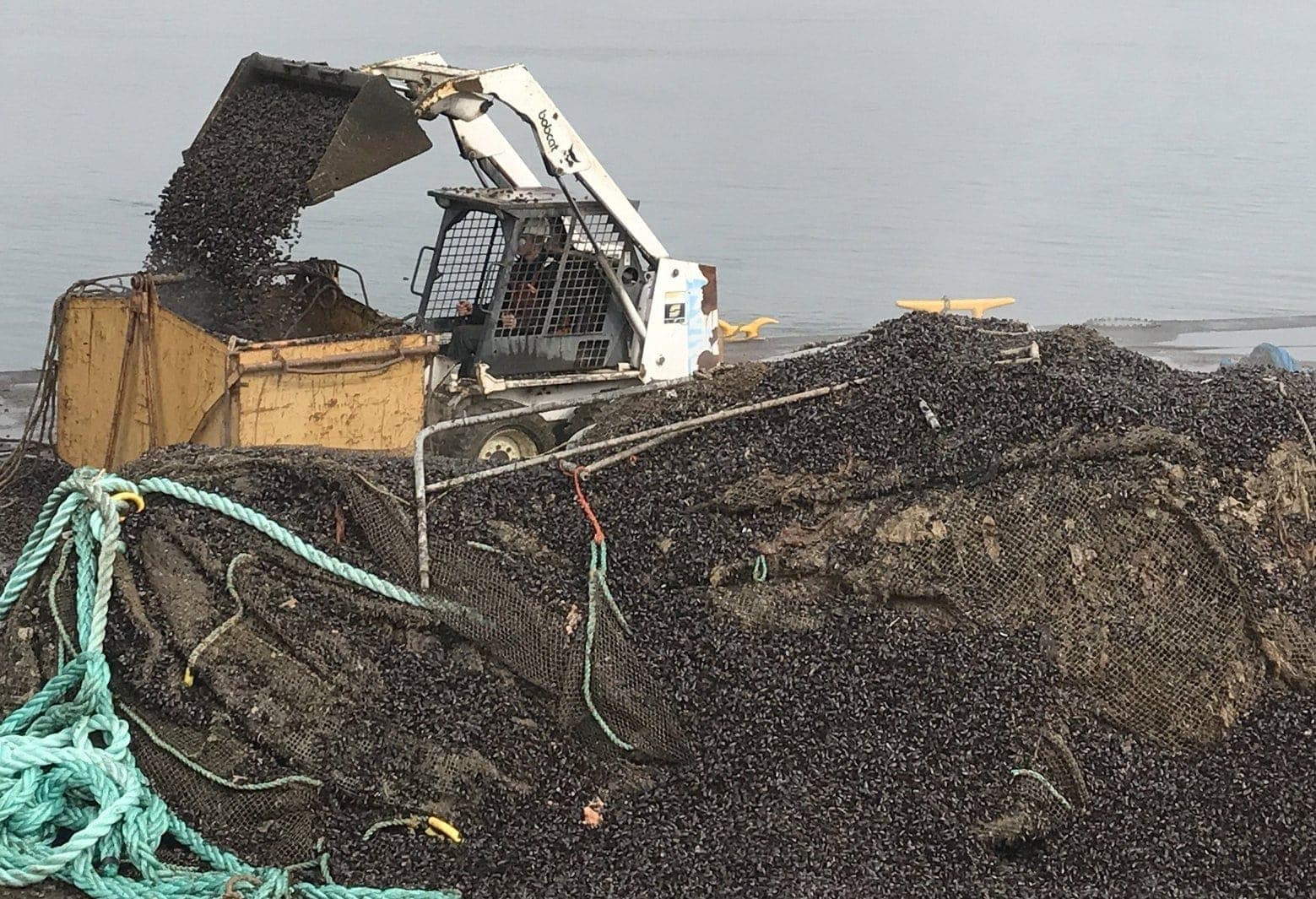
Days before having to defend themselves in court, Cooke Aquaculture has agreed to settle a Clean Water Act lawsuit filed by Wild Fish Conservancy as a result of the collapse of Cooke’s Cypress Island net pen. Under the terms of the agreement, Cooke will be required to pay $2.75 million. These funds will go to the Rose Foundation to fund environmental projects to protect wild salmon and killer whales in Puget Sound, as well as WFC’s litigation expenses. Cooke also agreed to change their practices and address additional dangers identified in the course of the lawsuit.
“This is truly a victory for the future of our sound,” said Kurt Beardslee, executive director of Wild Fish Conservancy. “Open water net pen aquaculture is a risky business, and thanks to this settlement we are one step closer to getting this dirty industry out of Puget Sound once and for all. This was long in coming. Last year, the public demanded an end to Atlantic salmon net pens. Just last week, thousands of people spoke out against switching these farms to different species. Now a federal judge ruled that Cooke broke the law. It’s time for this industry to leave Puget Sound.”
Wild Fish Conservancy issued pre-suit notice of violations in August 2017, days after the Cypress Island pen collapsed and spilled over 300,000 Atlantic salmon infected with an exotic virus into Puget Sound. In the aftermath of the catastrophe, Washington State moved to end Atlantic salmon aquaculture, and the State’s Department of Ecology issued a $332,000 fine. Cooke Aquaculture is currently petitioning the State for permission to restock surviving pens with biologically-altered rainbow/steelhead trout; a comment period on this proposal closed on Friday, November 22, with thousands of citizens and organizations commenting in opposition.
A trial in the US District Court in Seattle was scheduled to begin on December 2. Days before, Judge John Coughenour issued several summary judgments supporting WFC’s claims. Among the court’s findings: Cooke failed to conduct required inspections of net pen moorings and anchors and Cooke failed to accurately monitor and report the number of fish escaping from its pens. The Court had previously found that Cooke failed to develop operational plans that include necessary procedures for inspecting cages, storing chemicals, disposing of harvest blood, and tracking the number of fish in its cages and lost to predation. The Court rejected several of Cooke’s arguments to avoid liability for the catastrophic failure of one of its net pens. In doing so, the Court advanced the state of the Clean Water Act, making the law more valuable for environmental organizations seeking to hold other polluters accountable. Judge Coughenour also rejected Cooke’s efforts to end the suit arguing the Cypress Island pen was already closed, noting that Cooke “continues its operations in Puget Sound. Thus, civil penalties still serve to deter future Clean Water Act violations.”
“We’re thankful for the Judge’s ruling and hope the severity of these penalties will be a deterrent to anyone seeking to expand or establish open water net pen aquaculture in Puget Sound and beyond,” says Beardslee.
Cooke’s operations continue to put wild salmon and the health of Puget Sound at risk. Just weeks ago, one of the Bainbridge Island net pens began sinking due to a hole in a flotation pontoon; luckily, the damaged portion was not stocked with Atlantic salmon at the time but may have resulted in an escape were the pens occupied. Marine engineer Tobias Dewhurst, an independent expert testifying on behalf of Wild Fish Conservancy, reviewed conditions at each farm site and determined “conditions at each of its eight sites exceeded the maximum rated conditions specified by the net pen manufacturer,” and that as a result “pens and cages operated by Cooke were at risk of failure.” Even given subsequent changes, Dewhurst concluded, “certain remaining sites appear to be operating in conditions that exceed those specified by the net pen system manufacturers,” and therefore “may be at risk of partial or catastrophic failure.”
Wild Fish Conservancy was represented by Kampmeier & Knutsen PLLC and Earthrise Law Center. Cooke Aquaculture will pay accrued litigation costs and make a series of annual payments to the Rose Foundation for Communities and the Environment to support the recovery of wild salmon, steelhead, and killer whales.
Additional Documents
Consent Decree
Summary Judgement (Filed 4/26/19)
Summary Judgement (Filed 11/25/19)
Dr. Tobias Dewhurst’s Report
Join our mailing list to recieve important updates on our work, the latest wild fish news, & opportunities to take action to support wild fish.
This site is protected by reCAPTCHA and the Google Privacy Policy and Terms of Service apply.
Wild Fish Conservancy is recognized as a 501(c)3 non-profit by the IRS